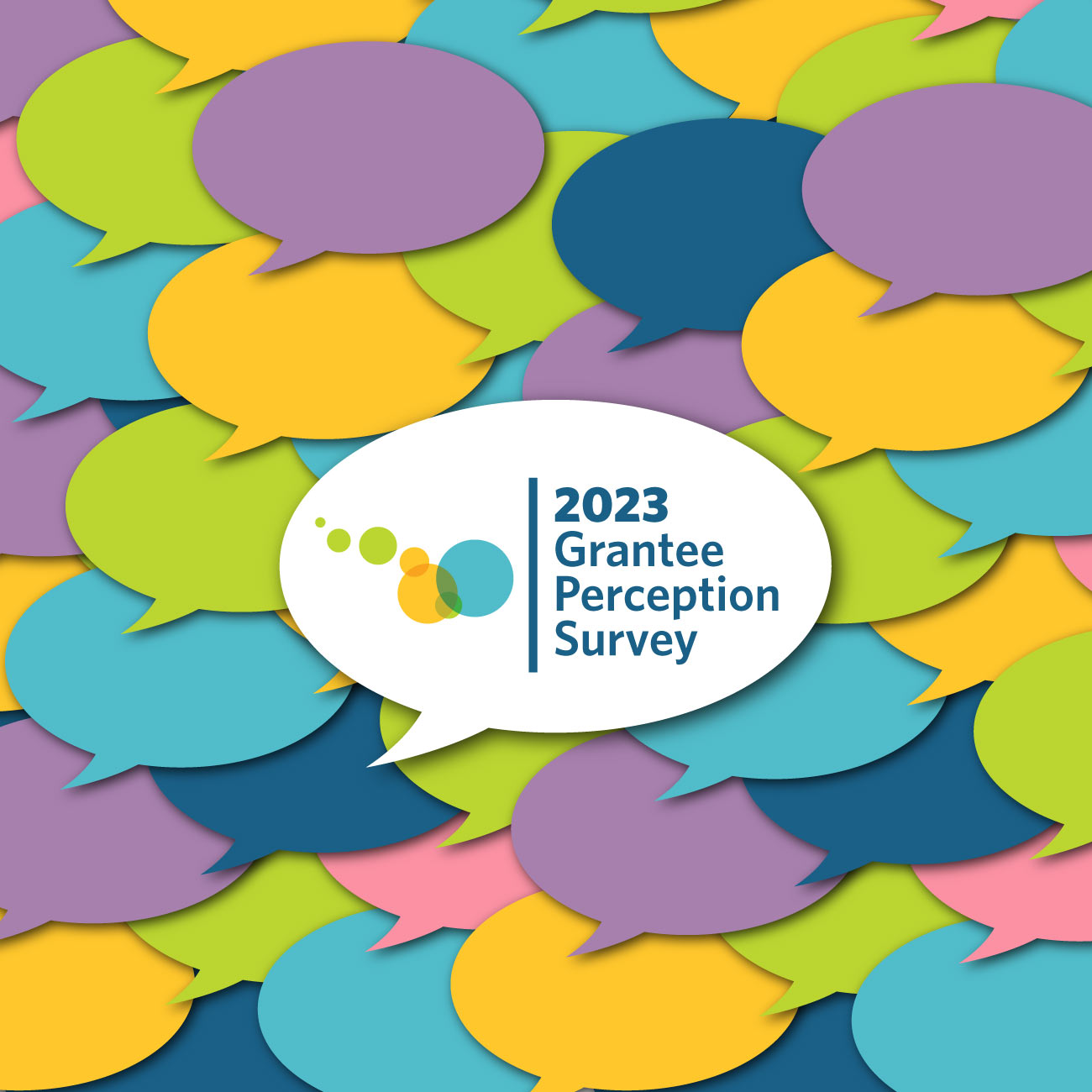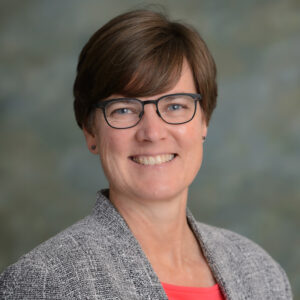In the fall of 2023, Missouri Foundation for Health (MFH) commissioned the Center for Effective Philanthropy (CEP) to conduct an anonymous survey of MFH partners. CEP conducts surveys regularly for over 300 philanthropies nationwide and benchmarks each foundation’s performance against other funders. CEP asked for candid feedback on our performance using numerical data and open-ended questions. Fifty-six percent of the 155 grantees and contractors invited to respond did so. This is a typical response rate for such surveys.
Earlier this year, CEP presented us with the results of our survey, which included both praise and suggestions for improvement. As much as we enjoyed hearing about what we do well, we appreciated the critical reflections even more. They point to places where MFH can better align our organizational strategies, practices, and behaviors with our values and vision. We will use the feedback to inform and improve our work in many ways, as we strive to become a better philanthropy.
If you responded to the survey, we thank you for your time and thoughtfulness. Here is what we learned, along with our commitments to action. We look forward to repeating the survey every two to three years to track our progress and reflect, with you, on whether and how we are improving.
Lesson 1: MFH’s efforts are having impact
Partners reported that MFH has had positive impacts on their organizations, the communities they serve, and on public policy. Notably, MFH ranked near the top 30% of funders in CEP’s comparative dataset for impact on public policy. Partners also feel MFH has successfully advanced knowledge in their fields of work.
“We are fortunate to see MFH influencing systems — at the policy/government level but also at institutional levels — that shape our field…Missouri is extremely well-served by the hard work of the MFH team (staff, Board, etc.).”
Commitments to Action: We are committed to building on our strengths in influencing public policy and advancing knowledge. We plan to continue investing time and effort building relationships with and educating legislators and state agency officials; supporting the work of advocates across the state; and influencing public opinion through education and communication of impartial research.
Lesson 2: There is room to improve communication, especially on high-level strategy
Survey respondents reported a high degree of comfort approaching MFH staff and praised staff for their degree of responsiveness and helpfulness. MFH’s ratings in these areas were typical when compared with other philanthropies.
However, MFH rated lower than typical for clarity, consistency, and transparency in communicating its work, including priorities and strategy. Notably, a refrain among partners was a desire to better understand MFH’s broad strategic goals and long-term vision, as well as how partners’ work fits into them.
“Communication with the Foundation was easy. Foundation staff were helpful, supportive and had a problem-solving orientation.”
Commitments to Action: We are committed to providing partners with a deeper understanding of the Foundation’s broad vision and accompanying strategies, as well as how individual partners’ work relates. We have recently redesigned the structure and content of the MFH website to be more accessible and clear, and will seek opportunities to clarify and bring to life MFH’s broad strategic goals and commitments using the website and other channels of communication. In 2025, MFH staff and leadership will receive training on how to communicate high-level strategy across all departments and functions to enhance transparency and consistency.
Lesson 3: Our relationships with partners could be more trusting, collaborative, and reciprocal
MFH performs similarly to other philanthropies in our openness to input from partners on strategy. About two thirds of partners said they had the opportunity to provide input into the direction of the initiative from which they receive funding, and that they did provide input. However, MFH rated lower on how much we understand our partners’ strategy and goals and our awareness of the challenges their partners and the communities they serve are facing. MFH’s ratings were also lower than typical for the degree to which MFH exhibited trust in partner organizations’ staff during the period of the award.
“Continue to listen to and learn from its grantees…the Foundation will continue to get stronger over the next few years and make a major impact on the health of individuals and communities.”
Commitments to Action: Along with many philanthropies across the country, MFH is committed to applying the principles of Trust-Based Philanthropy to all aspects of our work. This includes the practice of deep listening and relationship building based on reciprocity, two-way communication, and power sharing. We have already begun engaging with partners in more honest and transparent conversations while inviting co-creation of strategic efforts. We are also committed to greater field engagement with organizations and communities across the state. This will happen via our community liaison team and as our staff members spend more in-person time with partners and in communities.
Lesson 4: There are opportunities for MFH to enhance its DEI efforts and to further support partners in doing so
MFH receives typical ratings compared to other philanthropies on all measures related to diversity, equity, and inclusion, including the extent to which MFH communicates its commitment to DEI and what DEI means for its work. Just over half of partners agreed that MFH had enhanced their ability to address racial inequities in their work with communities and other partners. When asked how MFH could support partners’ efforts to advance racial equity, the majority said the Foundation should provide funding to build their organization’s capacity to pilot and/or scale programming that reaches a more racially diverse array of beneficiaries. Nearly half of partners also said they would like to see MFH advocate for public policies that advance racial equity at the local, state, and national levels.
“We need funders to be louder at calling out local and state leaders who are decrying DEI efforts. Nonprofits who receive state funding were in a very tight spot last legislative session with the calls to defund DEI efforts. We need our funders to step up and be loud about why that’s wrong.”
Commitments to Action: Considering the critical importance of diversity, equity, and inclusion to achieving MFH’s vision, we are not satisfied being average within the field of philanthropy. As an organization, we will further develop our antiracist mindsets, policies, and practices with guidance and mentorship from ProInspire. This organization was recently chosen to partner with MFH to help us learn and grow in our efforts to address racial equity. This will begin with internal work at MFH and quickly advance to how we show up and what we do in collaboration with, and in service to, our partners, including exploring how we can work with advocates to advance racial equity through public policy, and support nonprofit organizations in advancing their racial equity work broadly.
We Also Heard
MFH’s funding processes are viewed as appropriate and helpful. MFH is in the top third of philanthropies for the monetary return partners receive for every hour they spend on Foundation processes. Suggestions for improvement included providing longer-term and more flexible funding opportunities and improving non-monetary support, especially for networking and convening.
“The Foundation does a great job in connecting with their partners in every way possible. I would love for the Foundation to bring all the partners together in [my] region. Partners convening under one roof would be very empowering. An event of this magnitude would enhance our region greatly.”
Commitments to Action: In 2023, we began providing more general operating/core support grants, and we are committed to continuing this practice. In 2024, we increased MFH’s indirect expense support for grantees on project-specific grants and will continue to review our indirect expense support policy yearly. MFH is also committed to expanding and enhancing its role as convener. Since opening our convening space at our headquarters in St. Louis, MFH has become a hub for non-profit meetings, as well as a space to host learning and sharing events amongst our partners. But we can do more. We will be exploring opportunities to bring partners together regionally or by topic.
MFH is committed to continuous learning and improvement as we support our community partners to address the complex social and health equity issues impacting our state. Two-way input and feedback are critical to maintaining healthy and productive partnerships in pursuit of our common goals. The CEP survey is just one avenue to do so. Just as we are committed to sharing our candid thoughts and ideas with you, we encourage you to regularly share your thoughts and ideas with MFH staff and leaders through convenings, virtual and face-to-face meetings with staff, and through our website — our doors and ears are always open.




